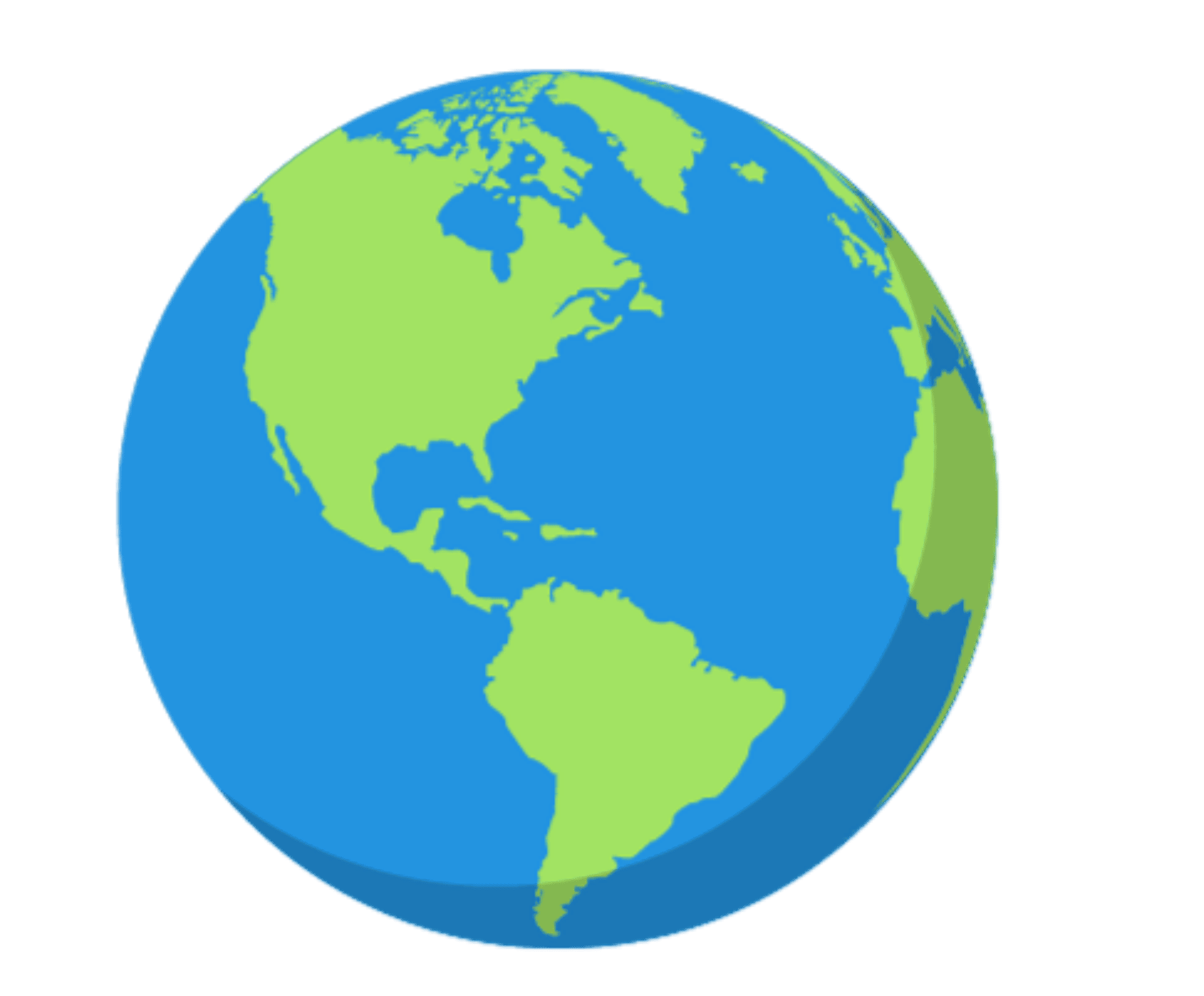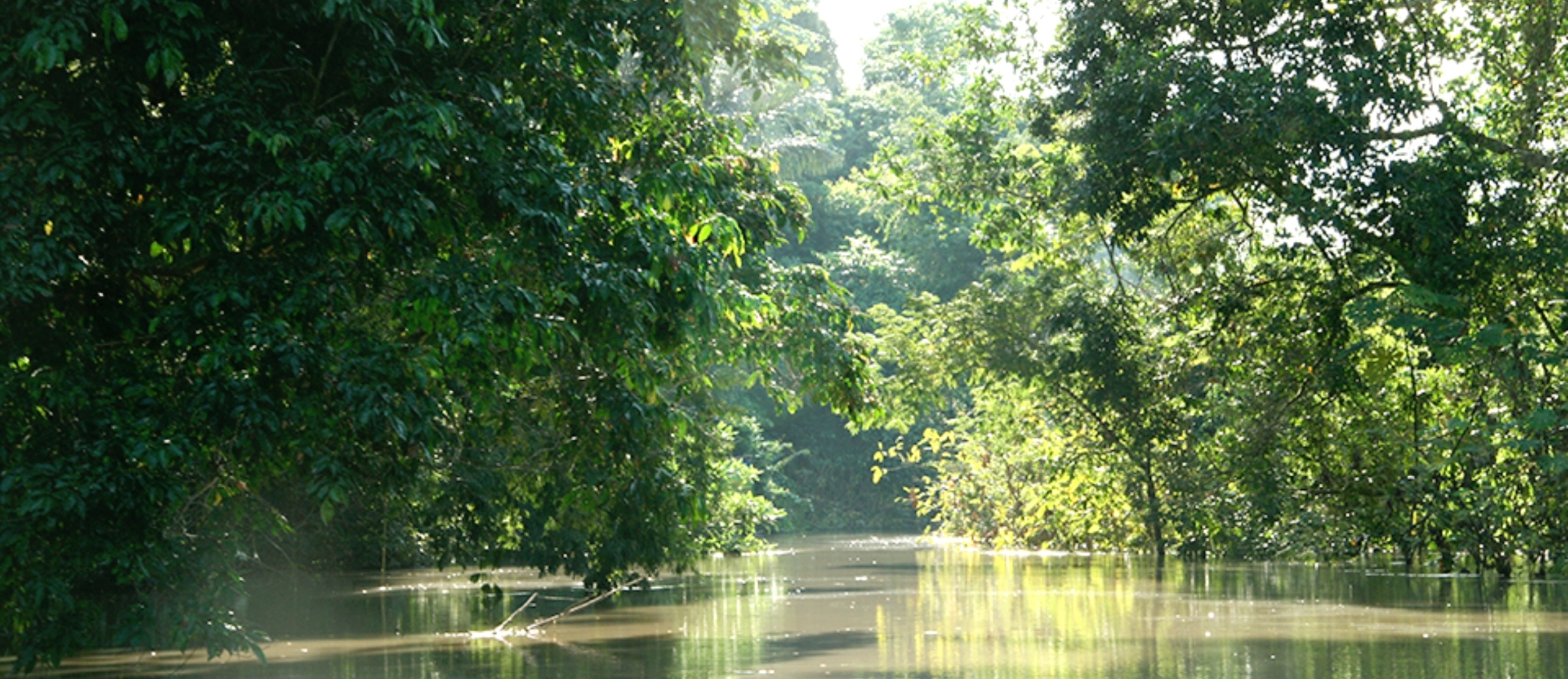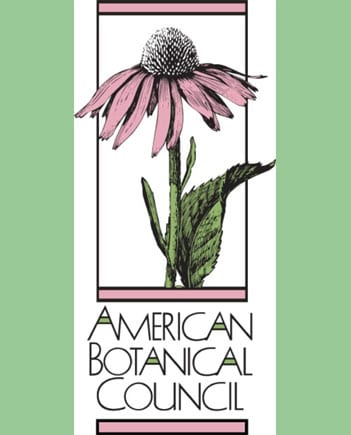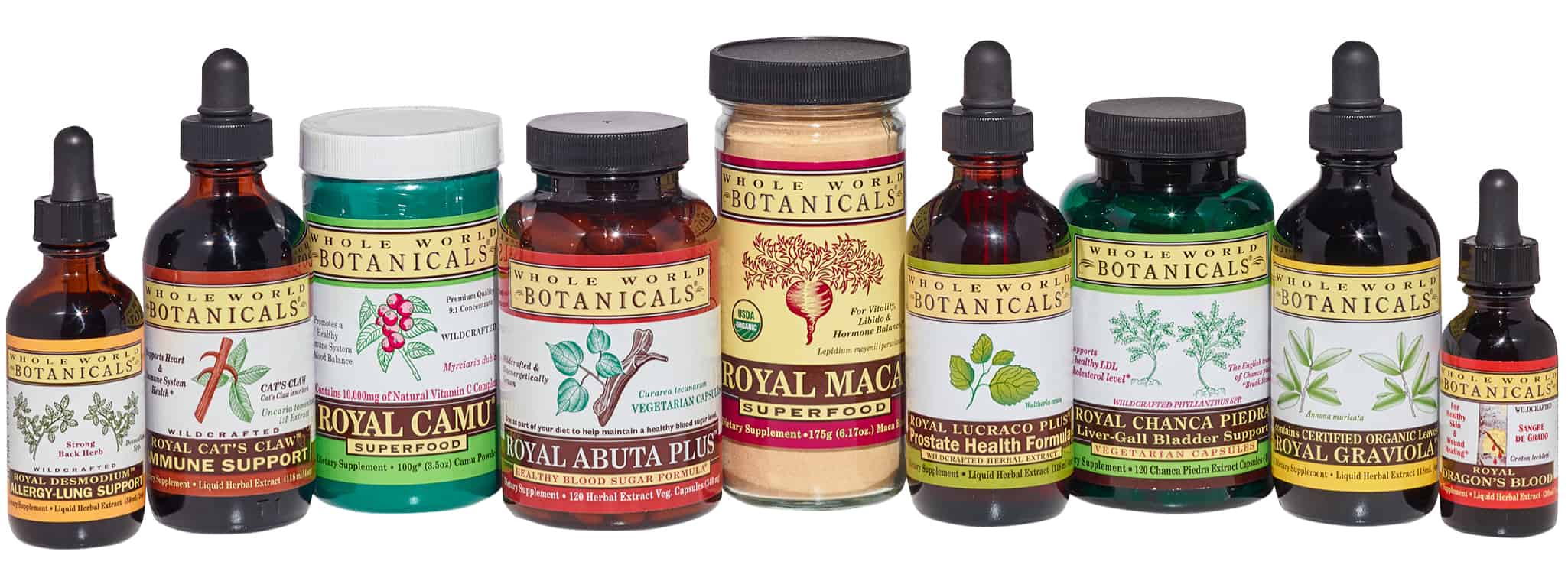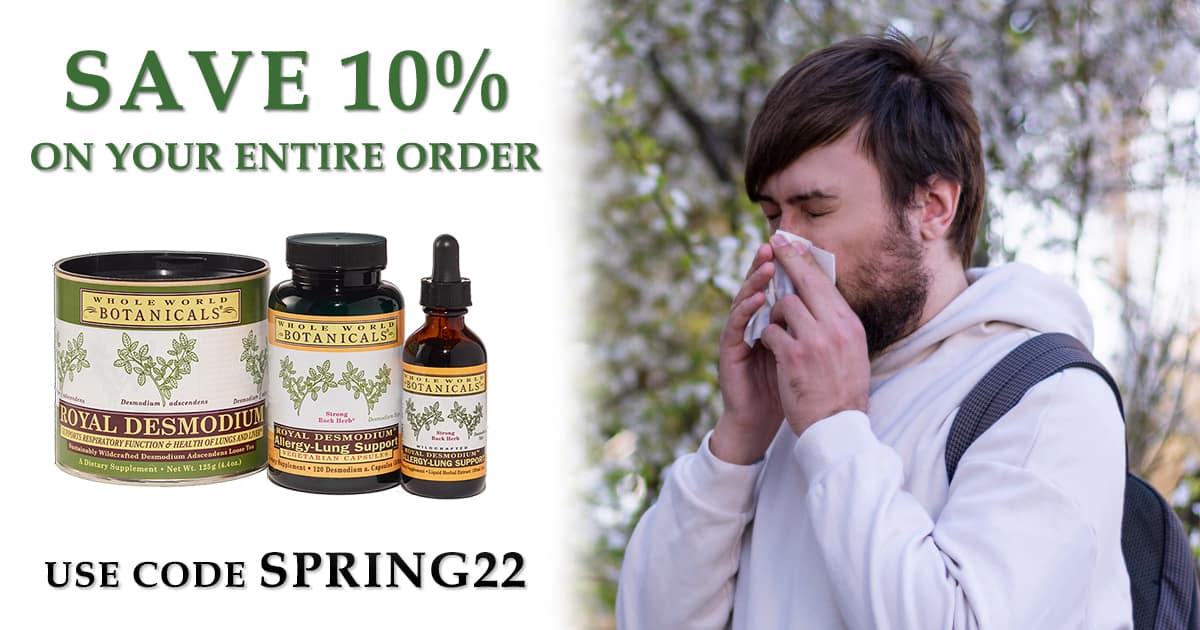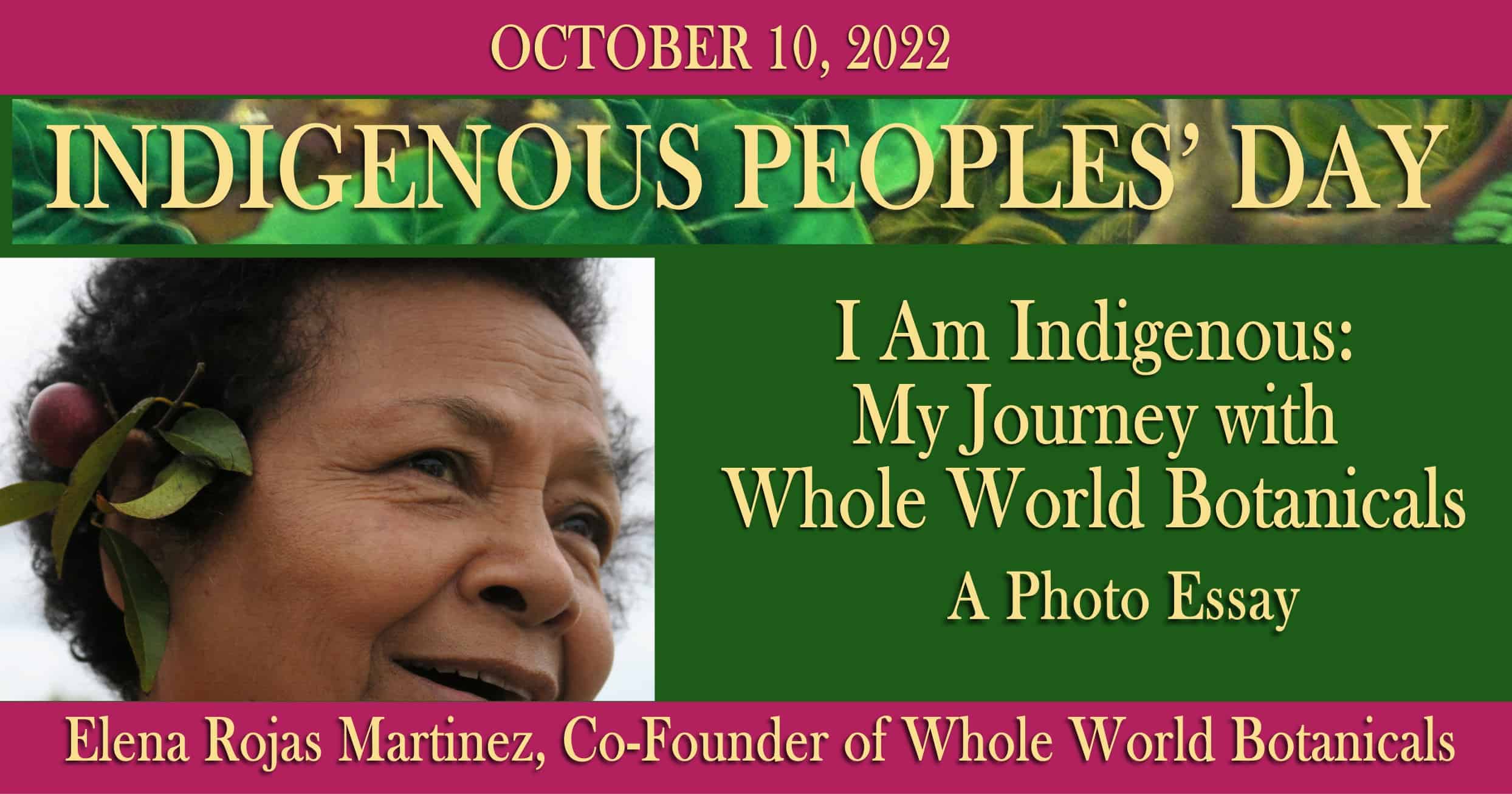Some Positive News for Nature’s Pharmacy: The Amazon Rainforest
By Viana Muller, PhD
As a consumer of Whole World Botanicals’ therapeutic herbal products, you have a very personal reason for caring about what happens to the Amazon Rainforest, which, as you are undoubtedly already aware, is in deep crisis due to global warming throughout the world. Your Cat’s Claw, Chanca Piedra, Camu-Camu, Desmodium (Amor Seco), Graviola, and Dragon’s Blood products all began their lives as vines, trees, fruit bushes, or small, fast-growing plants in different areas of the vast Amazon River basin, which extends from northeastern Peru moving east into Brazil and further north into Ecuador.
Climate extremes have become common in the Amazon rainforest, as some areas continue to experience extreme drought while others are being ravaged by torrential rains and flooding. The Camu-Camu harvests have already been reduced due to these changes in the rainforest climate. The long-term danger is that our beloved, powerful Peruvian rainforest botanicals will no longer be available as the stresses of climate change continue to reduce the harvests year by year.
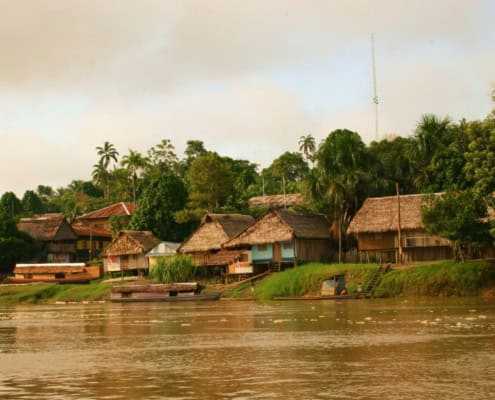
I’ve heard people say that for every human illness, God has given a plant to help restore our health. That’s a statement of faith, and yet I’ve seen what I consider miracles take place again and again in people’s health with the use of these botanicals. I include my own health, in particular, my coping with multiple chemical sensitivities.* Those of us who know from personal experience how much we have to lose if climate change destroys the Amazon rainforest have a special responsibility to educate others about the potential loss of these precious rainforest medicinal plants.
Since Elena Rojas Martinez and I co-founded the company more than 25 years ago, we have believed that enjoying the benefits of therapeutic botanicals from the Amazon comes with the responsibility to help the Indigenous peoples of the region thrive while preserving their culture and traditions.
Our commitment to the region includes using sustainable methods for botanical collection that are safe for the environment. In addition, we’ve undertaken several social mission projects since 1996, including providing school supplies to Indigenous communities that are home to botanical growers and collectors. We have also worked to provide Indigenous women with water filters to provide clean water in their areas. We are so proud of the incredible contributions these “Water Women” are making to the health of their communities!
Good News from Brazil!
Environmental protection of the Amazon rainforest is a huge challenge, and in recent years, the news has unfortunately been discouraging. That’s why I’m grateful to be able to finally share some truly positive news about some positive developments. Here are some highlights of recent developments that give me hope!
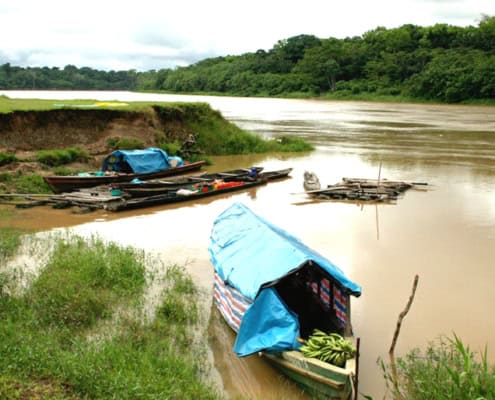 Back in August of 2023, eight Amazon countries participated in the “Amazon Summit,” held in Belem, Brazil, near the mouth of the Amazon. Presidents from Bolivia, Brazil, Colombia, Ecuador, Guyana, Peru, Suriname, and Venezuela signed a groundbreaking declaration – named the “Belem Declaration – to safeguard the Amazon. The declaration emphasized how important Indigenous knowledge is to help conserve the region’s biodiversity and called for Indigenous peoples’ participation in decision-making. The Belem Declaration promotes sustainable use of the rainforest and addresses concerns about deforestation and biodiversity in the Amazon region by protecting land rights within Indigenous territories.
Back in August of 2023, eight Amazon countries participated in the “Amazon Summit,” held in Belem, Brazil, near the mouth of the Amazon. Presidents from Bolivia, Brazil, Colombia, Ecuador, Guyana, Peru, Suriname, and Venezuela signed a groundbreaking declaration – named the “Belem Declaration – to safeguard the Amazon. The declaration emphasized how important Indigenous knowledge is to help conserve the region’s biodiversity and called for Indigenous peoples’ participation in decision-making. The Belem Declaration promotes sustainable use of the rainforest and addresses concerns about deforestation and biodiversity in the Amazon region by protecting land rights within Indigenous territories.
The Belem Declaration also included the launch of the Amazon Alliance to Combat Deforestation, which has the impressive goal of “zero deforestation!”
At the same time last August, the Rainforest Trust announced a $50 million, 4-year investment in a program to protect 20 to 25 million acres of the approximately 138 million acres of undesignated land in the Brazilian Amazon. The Rainforest Trust is a US-based nonprofit environmental organization that focuses on partnerships with local organizations and partnerships with Indigenous peoples to protect rainforest areas around the globe, including the Amazon.
More good news was announced earlier this year when Brazil achieved a significant milestone in 2023. Thanks to the efforts of Brazilian president Luiz Inácio Lula da Silva – known to Brazilians as “President Lula” – deforestation of the Amazon rainforest was reduced by 50% during his first year in office. Lula accomplished this by dramatically increasing enforcement against illegal forest clearing by ranchers and farmers.
As a result, the Brazilian Amazon, which comprises 60% of the rainforest, saw a decrease from 3,963 square miles of deforestation in 2022 to 1,989 square miles in 2023. This reduction is a major reversal from the policies of the previous president, Jair Bolsonaro. During Bolsonaro’s 2019 to 2022 term, deforestation in the Amazon rainforest surged by a shocking 59.5% and reached a 15-year high.
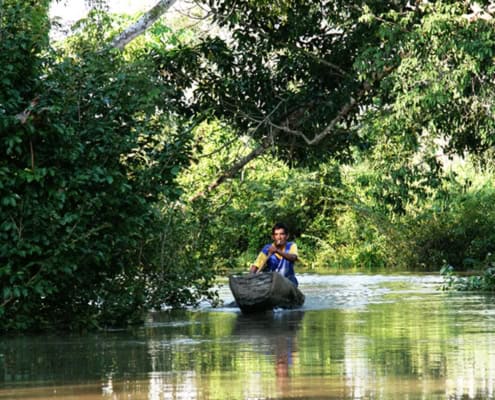 In more good news, in March of 2024, French President Emmanuel Macron made a three-day visit to Brazil, where he met with Lula in Belem. During that visit, they announced a $1.1 billion investment program focused on protecting the Amazon rainforest. The program, which involves both public and private funds, is aimed at preserving the Brazilian and Guyanese Amazon rainforest over the next four years.
In more good news, in March of 2024, French President Emmanuel Macron made a three-day visit to Brazil, where he met with Lula in Belem. During that visit, they announced a $1.1 billion investment program focused on protecting the Amazon rainforest. The program, which involves both public and private funds, is aimed at preserving the Brazilian and Guyanese Amazon rainforest over the next four years.
The two presidents expressed their commitment to the “conservation, restoration, and sustainable management of the world’s tropical forests.” They agreed to work on an ambitious agenda, including developing innovative financial instruments, market mechanisms, and payments for environmental services.
I was also pleased to see that during the visit, Macron also awarded the National Order of the Legion of Honor, France’s highest order of merit, to Indigenous leader and environmental campaigner Raoni Metuktire, honoring his tireless fight to protect the rainforest and Indigenous rights.
Battling Deforestation in Earth’s Vital Rainforest
The Amazon is also home to over 2.2 million Indigenous people who depend on the rainforest for their livelihoods and cultural practices. Deforestation disrupts their way of life and livelihoods and, in many cases, threatens their very existence.
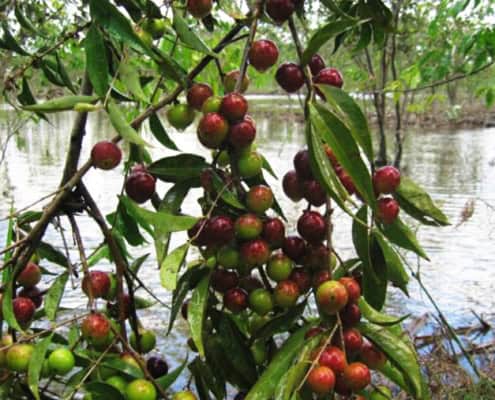
Camu-camu berries growing in the Amazon rainforest of Peru. These wildcrafted berries, the best food source of Vitamin C on the planet, are found in Whole World Botanicals Royal Camu supplement
But actually, Amazon deforestation is a threat to our entire planet. The trees in this rainforest absorb and store large amounts of carbon dioxide. When the forests are cleared, this carbon dioxide is released into the atmosphere, exacerbating climate change. Deforestation already accounts for around 15% of global greenhouse gas emissions!
Scientists have warned that if deforestation reaches 20 to 25% of the Amazon, the rainforest could reach a “tipping point” and begin transitioning into a drier, savanna-like ecosystem. This would have catastrophic consequences! As you can see, there’s so much more work to be done because, to date, around 17% of the rainforest has been lost.
~ ~ ~
The truth of the matter is that our very existence as human beings and our thriving physically, psychologically, and spiritually is dependent on our “right relationship” with nature. May this positive news for the Amazon rainforest be multiplied many times over and may the forest long provide us with its amazing natural medicines and be a critical source of oxygen, without which we cannot survive.
* I also do believe in the miracles of modern medicine, even though it has distinct disadvantages and is frequently not a wise first choice for addressing a health issue.
